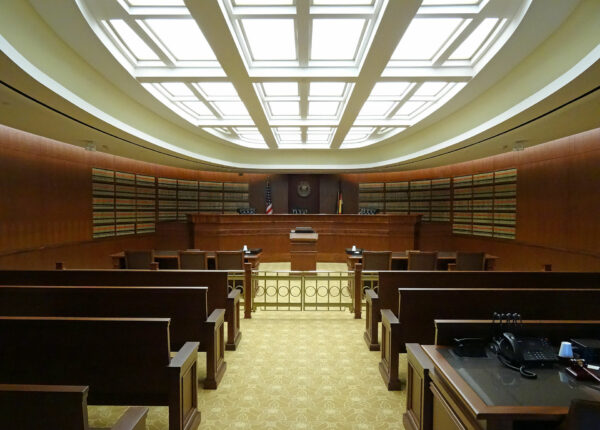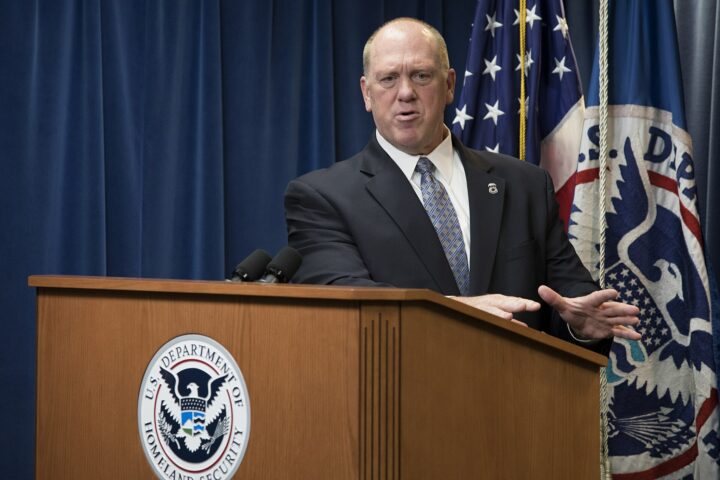A Utah state judge on Monday reportedly struck down a Republican-backed congressional map, ruling that it violated state law and approving an alternative plan that will, for the first time in nearly 25 years, create a Democratic-leaning district in the traditionally conservative state.
Third District Judge Dianna Gibson ruled that the map, approved by the Republican-controlled legislature, “does not comply with Utah law.”
In her decision, Gibson criticized the map—known as Map C—for relying on partisan political data and for failing to adhere to the redistricting standards established under Proposition 4, a 2018 ballot initiative passed by voters to curb gerrymandering.
“Map C was drawn with partisan political data on display,” Gibson wrote, adding that the map “was drawn with the purpose to favor Republicans.”
The ruling handed a significant victory to the plaintiffs, the League of Women Voters of Utah and Mormon Women for Ethical Government, two advocacy groups that submitted their own proposed map.
Their version splits Utah County into two districts and creates a new district centered in northern Salt Lake County—an area expected to lean Democratic. The change effectively reshapes the political balance of the state’s four congressional seats, one of which has been safely Republican for decades.
Gibson endorsed the plaintiffs’ plan, stating that it “meets the criteria set forth under Proposition 4,” which prohibits the use of partisan data in drawing congressional lines. The law was passed with broad public support in 2018 amid growing frustration with partisan redistricting practices.
Democrats celebrated the ruling as a breakthrough in one of the nation’s most reliably Republican states. “This is a win for every Utahn,” Utah’s Senate and House Democrats said in a joint statement, calling the decision “a deep sense of hope and relief.” They added, “Fair representation is the truest measure of our promise to serve the people of Utah.”
Suzan DelBene, chair of the Democratic Congressional Campaign Committee, hailed the ruling as a repudiation of partisan gerrymandering. “Judge Gibson rejected a partisan, gerrymandered map and reaffirmed that power should firmly belong to the people,” DelBene said. “Utahns made it clear nearly seven years ago when they passed Prop 4: they want fair maps that reflect their communities.”
Republicans, meanwhile, condemned the decision as judicial overreach that undermines the will of the legislature and the voters who elected it. The Utah GOP has already begun gathering signatures to repeal Proposition 4 entirely, arguing that it ties the hands of elected officials and invites courts to interfere in the political process.
If successful, a repeal measure could appear on the ballot next November, though it would not affect the 2026 midterm elections.
The ruling also carries broader national implications, coming amid an escalating redistricting battle between the two parties. Earlier this year, President Donald Trump urged Republican-led states to redraw congressional maps to preserve the GOP’s House majority. Texas quickly complied, with Gov. Greg Abbott signing a new map into law in September. In response, California’s Democratic leadership pushed Proposition 50, a measure to add as many as five more Democratic-leaning districts in the state—a proposal approved by voters on Nov. 4.
With Utah now joining the list of states facing redistricting upheaval, Gibson’s ruling underscores a growing tension between voter-approved reforms and partisan control over the redistricting process.
For now, Democrats are celebrating what they see as a long-awaited foothold in deep-red territory, while Republicans warn that the decision marks another instance of liberal judicial activism reshaping political outcomes that voters themselves should decide.
[READ MORE: Trump Takes On Schumer, Says He’s Losing It]








